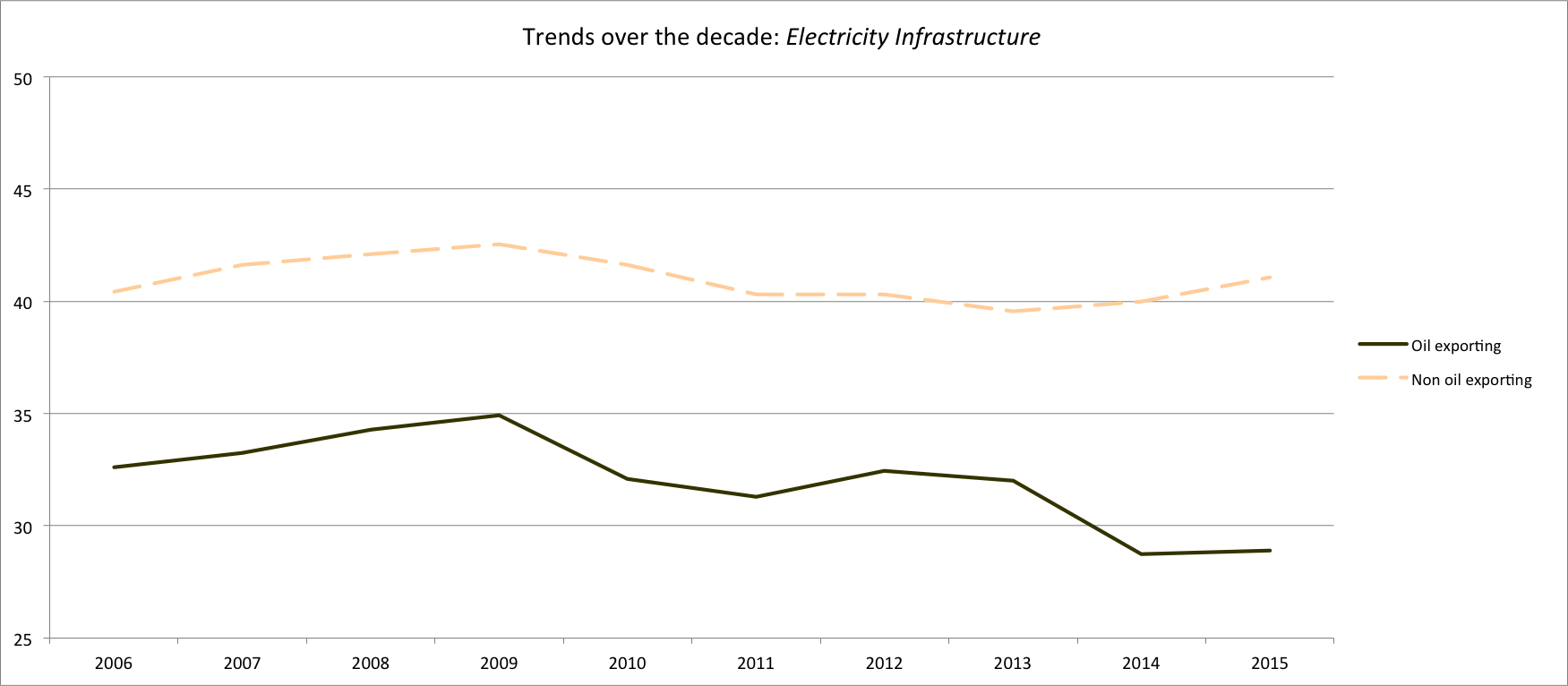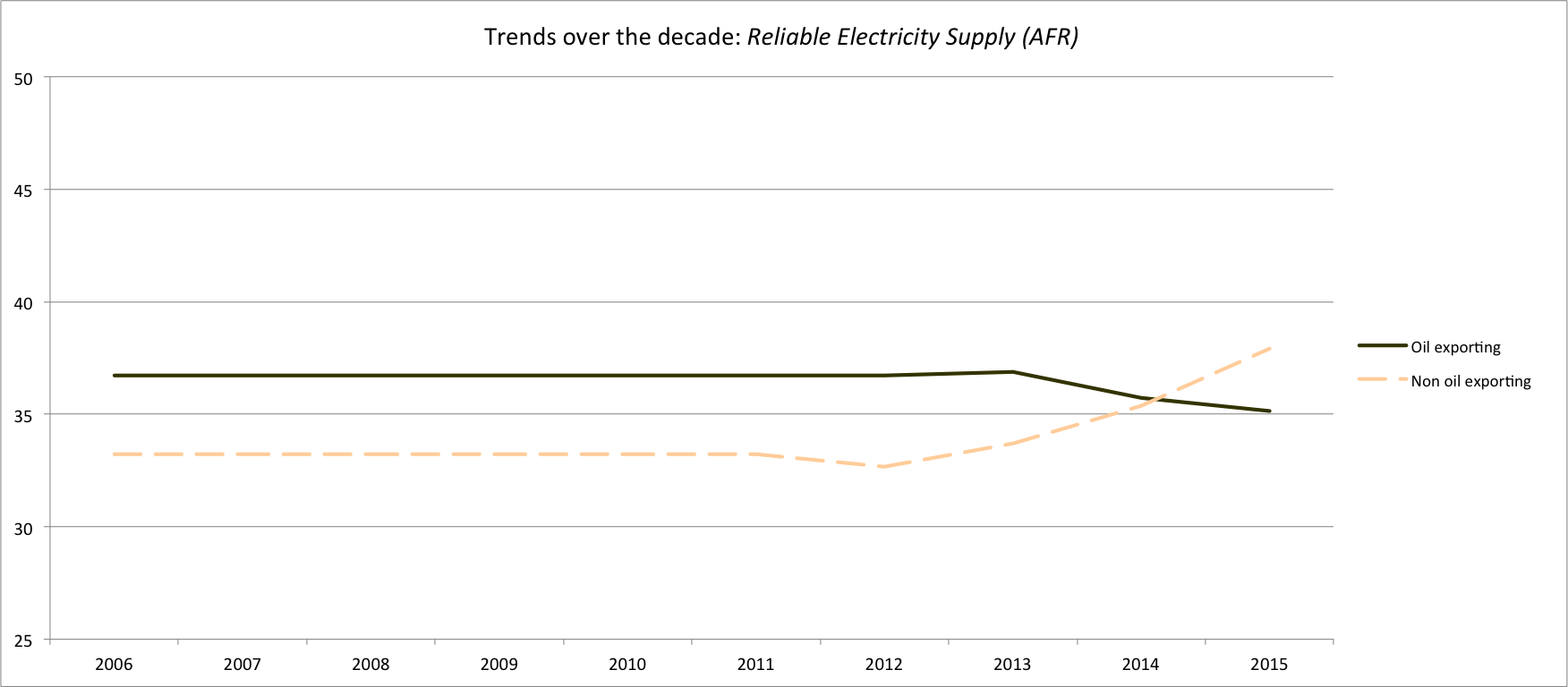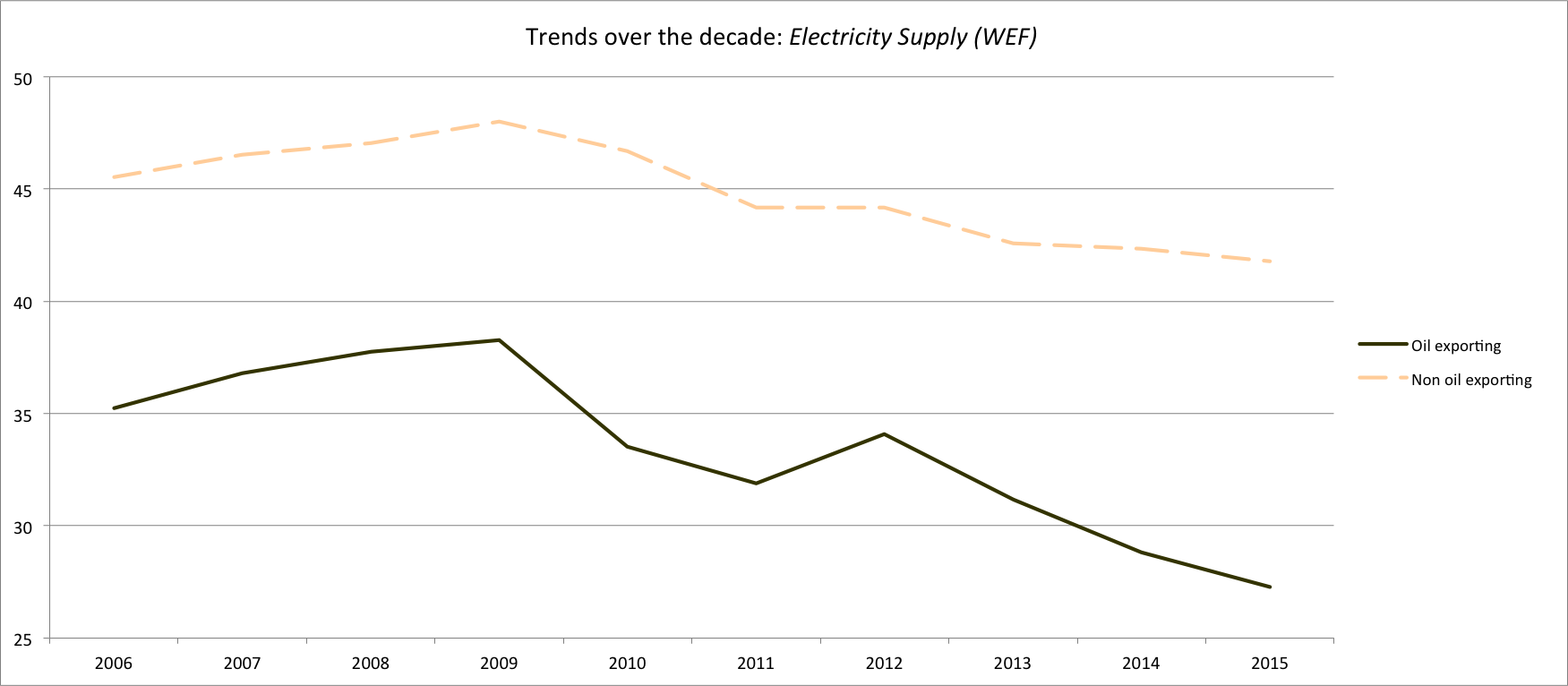Electricity Infrastructure is holding back further progress in Infrastructure
02 November, 2016
The indicator Electricity Infrastructure consists of two measures:
- Electricity Supply issued by the World Economic Forum (WEF), which assesses the reliability of electricity supply.
- Reliable Electricity Supply coming from Afrobarometer (AFR), which captures how African citizens perceive the government’s handling of providing a reliable electricity supply.
Over the past decade, 19 countries have registered deterioration in this measure, with 13 countries showing a decline greater than -5.0 points. This means that 40% of African citizens live in a country which has seen deterioration and over half of Africa’s economy has been affected by this issue over the past decade.
South Africa has shown the largest deterioration (-30.1), followed by Sierra Leone (-28.4), Libya (-28.1), Botswana (-26.5) and Ghana (-24.7). In 2015, the lowest scoring countries in Electricity Infrastructure are Guinea (6.7), Madagascar (6.7), Angola (9.9), Burkina Faso (10.2) and Chad (10.2).
40% of African citizens live in a country which has seen deterioration in Electricity Infrastructure
Twenty-two countries show improvement in this indicator over the last ten years, with 17 countries showing an increase in score larger than +5.0 points. These countries account for a third of Africa’s population, and a third of its Gross Domestic Product.
- Uganda (+26.3), Gambia (+16.9), Senegal (+15.7), Morocco (+13.8) and Niger (+13.2) show the largest improvements on the continent.
- In 2015, the highest scoring countries are Mauritius (93.6), Morocco (76.5), Seychelles (75.9), Namibia (71.6) and Tunisia (69.1).
Interestingly, at the continental level, the two measures show diverging trends over the past decade. On average, Electricity Supply illustrates a negative trend (-4.7), with over half of the countries measured showing decline. However, Reliable Electricity Supply registers a positive average trend (+3.5); over half of the countries measured in this indicator improve.
At the continental level, the two measures for Electricity Infrastructure show diverging trends over the past decade.
At the country level, 16 countries show similar trends in the two measures, while 13 countries show diverging trends. Citizens in Côte d’Ivoire, Egypt, Guinea, Malawi, Mozambique, Nigeria, Tunisia, Zambia and Zimbabwe feel their government has improved the reliability of the electricity supply over the past ten years, while these countries show deterioration in Electricity Supply.
Reversely, public opinions in Cabo Verde, Kenya, Mali and Mauritius are negative about their government’s efforts to improve the reliability of the electricity supply, while these countries show improvement in Electricity Supply.
Oil producers and non-oil producers’ performance in Electricity Infrastructure
In 2015, oil producing countries* score 28.9 in Electricity Infrastructure, over ten points below the average score for non-oil producing countries (41.1).
Oil producing countries score over ten points below the average score for non-oil producing countries.
Over the past decade, oil producers have seen an average decline in Electricity Infrastructure (-3.7). This is in contrast to non-oil producing countries, which have seen a marginal increase in score (+0.6).

Oil producers’ decline in Electricity Infrastructure is driven by both of the underlying sub-indicators; Electricity Supply (-8.0) and Reliable Electricity Supply (-1.6). While non-oil producing countries have also shown decline in Electricity Supply (-3.8), although to a lesser extent, these countries show an average improvement in Reliable Electricity Supply (+4.7).


* Fourteen countries, as defined by UNECA as oil producing: Algeria, Angola, Cameroon, Chad, Congo, Côte d’Ivoire, DRC, Equatorial Guinea, Gabon, Ghana, Libya, Niger, Nigeria and Sudan


